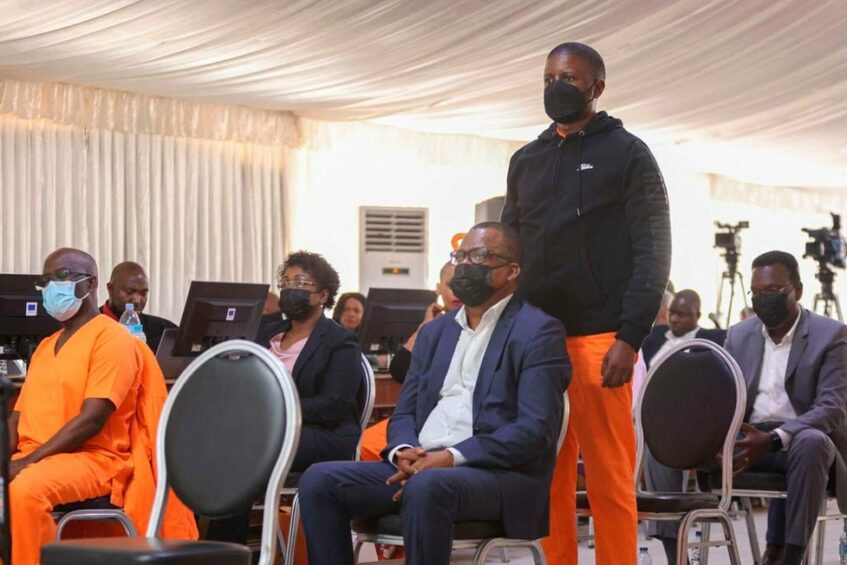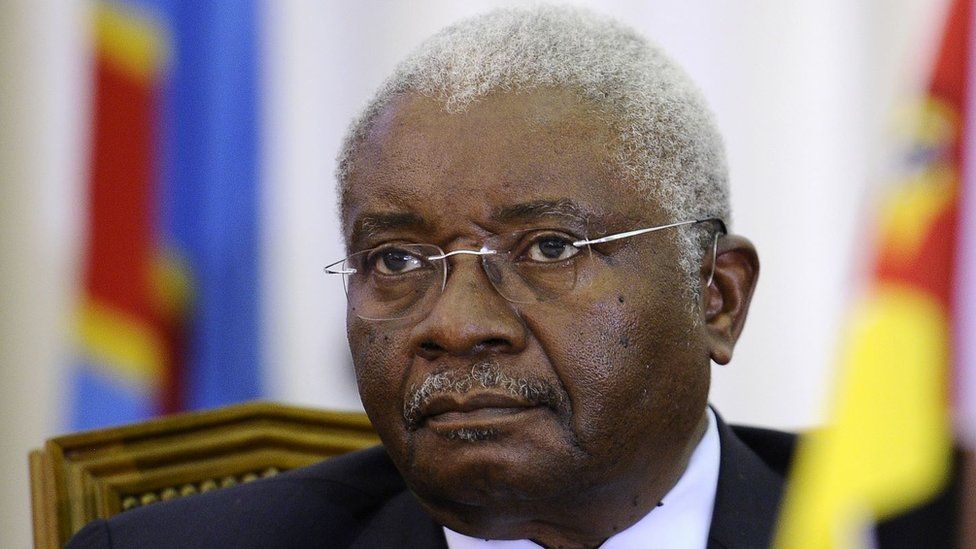
The son of Mozambique’s former president has been jailed for 12 years over a vast $2.2bn (£1.8bn) fishing project scandal that triggered an economic crisis in the country.
Ndambi Guebuza, son of former president Armando Guebuza, was among 11 people found guilty of embezzlement and money laundering.
Kickbacks were also given to some senior politicians.
The consequences of the crime “will last generations”, the judge said.
Judge Efigenio Baptista also said Ndambi Guebuza financed his taste for luxury through the crimes of embezzlement and money laundering.
Others given prison sentences include Gregorio Leao, head of the Security and Intelligence Service (SISE) under Mr Guebuza, and Antonio do Rosario, who became chairperson of all three newly-created state companies that took the loans.
Judge Baptista said they “were expected to be the guardians of public assets for being high ranking leaders responsible for security but instead, they are the key culprits”.

One notable absentee from the trial has been former finance minister Manuel Chang. He has been detained in South Africa since December 2018, in response to an arrest warrant issued by authorities in the United States, on charges of conspiracy to commit wire fraud, securities fraud and money laundering.
He denies any wrongdoing.
President Guebuza left office in 2015 after a decade in power.
However, his Frelimo party remains in charge – as it has been since independence in 1975.
Between 2013-2014, three newly established companies took on $2.2bn (£1.5bn) of debt, much of it without the knowledge or approval of the country’s parliament. Despite this, the Mozambican government stood as guarantor of the loans, meaning the state would repay the money if things went wrong.
The money was allegedly used to buy a large tuna factory and a maritime security fleet, as well as to finance other deals involving companies in which the state is a leading shareholder.
In 2016, the government swapped some of the debt for a conventional bond, issued by the state. Soon afterwards, it admitted the full scale of the borrowing, triggering an economic crisis in Mozambique.
The country’s currency lost a third of its value, inflation surged and foreign donors pulled out.
Auditors also reportedly discovered $500m of the money was missing.
The loans were issued by Credit Suisse and the Russian bank VTB, with three former Credit Suisse bankers pleading guilty to US charges of money laundering over the case.
Late last year UK authorities fined the investment bank $178m over the tuna corruption scandal.
The bank was also ordered to write off $200m of debt “tainted by corruption” that was owed by Mozambique.
The fine was part of a $475m settlement with UK, Swiss and US regulators.
Support Eye Radio, the first independent radio broadcaster of news, information & entertainment in South Sudan.
Make a monthly or a one off contribution.
Copyright 2024. All rights reserved. Eye Radio is a product of Eye Media Limited.